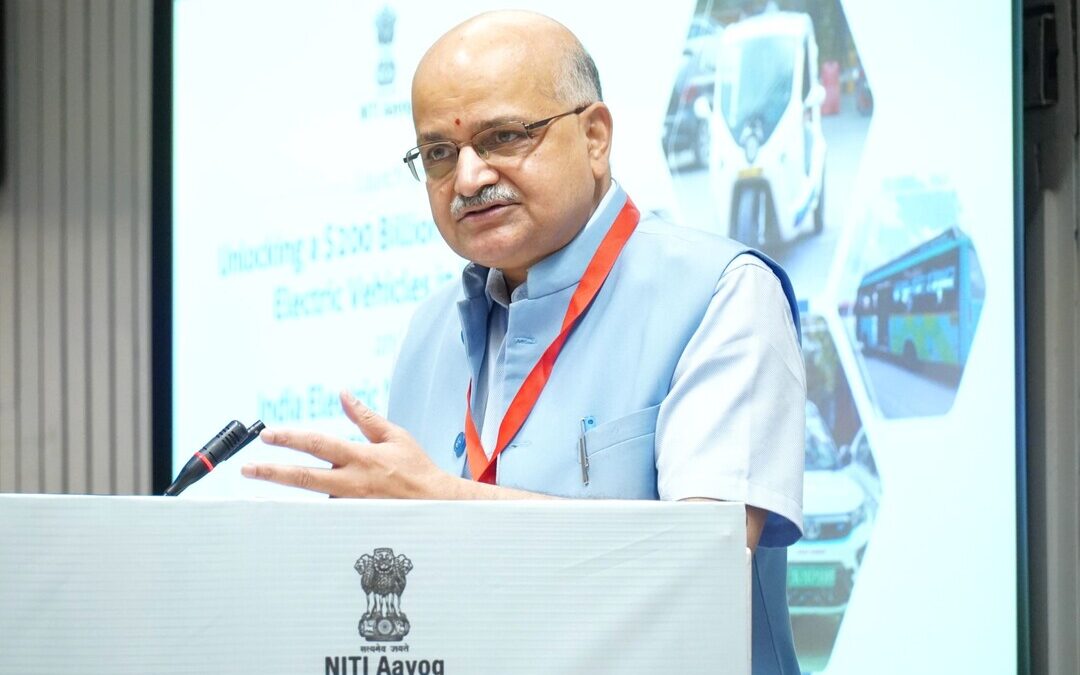NITI Aayog Rolls Out Index Tracking State-Level EV Adoption Across India
New index ranks Indian states on EV adoption, infrastructure and innovation to accelerate clean mobility transition.
India’s top public policy think tank, NITI Aayog, on Monday launched the India Electric Mobility Index, the country’s first nationwide framework to assess and rank states and union territories on their progress toward electric mobility adoption.
The new index is designed to guide states in aligning local efforts with national goals for reducing transport emissions and reaching net-zero carbon emissions by 2070.
A new report titled “India Electric Mobility Index 2024,” tracking the electric mobility trends across Indian states, was also released in New Delhi by NITI Aayog member Rajiv Gauba in the presence of senior officials, including CEO B.V.R. Subrahmanyam, Heavy Industries Secretary Kamran Rizvi, and Program Director for E-Mobility Sudhendu Sinha.
An interactive IEMI dashboard has also been launched to allow public access to rankings and data visualizations across states and UTs.
Three-Pillar Framework to Track EV Adoption
The India Electric Mobility Index scores states out of 100 across 16 indicators grouped into three main themes: Transport Electrification Progress, Charging Infrastructure Readiness and EV Research and Innovation.
While Transport Electrification Progress measures EV demand and adoption, Charging Infrastructure Readiness assesses supply-side deployment. EV Research and Innovation, on the other hand, evaluates support for R&D and local manufacturing.
According to NITI Aayog, the index enables policymakers to benchmark their progress, learn from best practices, and identify areas requiring targeted interventions.
“The IEMI provides a transparent, comparative framework to assess progress across key themes such as electrification, infrastructure, and innovation,” said Gauba. “It enables states to benchmark their efforts, identify gaps, and learn from each other’s successes.”
Pushing State-Level Competition and Collaboration
The launch of the IEMI reflects the government’s broader strategy to decentralize EV policy, empowering states to drive the transition at the local level.
The index is also intended to promote healthy competition between states and foster collaboration through the sharing of successful models.
“NITI Aayog has already been at the forefront of enabling the ongoing EV revolution,” said Subrahmanyam. “This index is yet another effort by NITI Aayog to propel India towards its vision of a decarbonized and energy-secure future.”
The IEMI follows a series of initiatives rolled out over the past year, including the signing of letters of intent in September 2023 to mobilize investment in EV infrastructure and manufacturing.
India’s EV market is expected to grow significantly this decade, driven by government incentives, falling battery costs and rising consumer demand. The IEMI is seen as a key mechanism to ensure that this growth is inclusive, data-driven and regionally balanced.
Also Read:
Govt Issues Fresh EV Safety, Charging Norms to Support Domestic Production
Nirmal Menon
Related posts

Subscribe
Error: Contact form not found.


